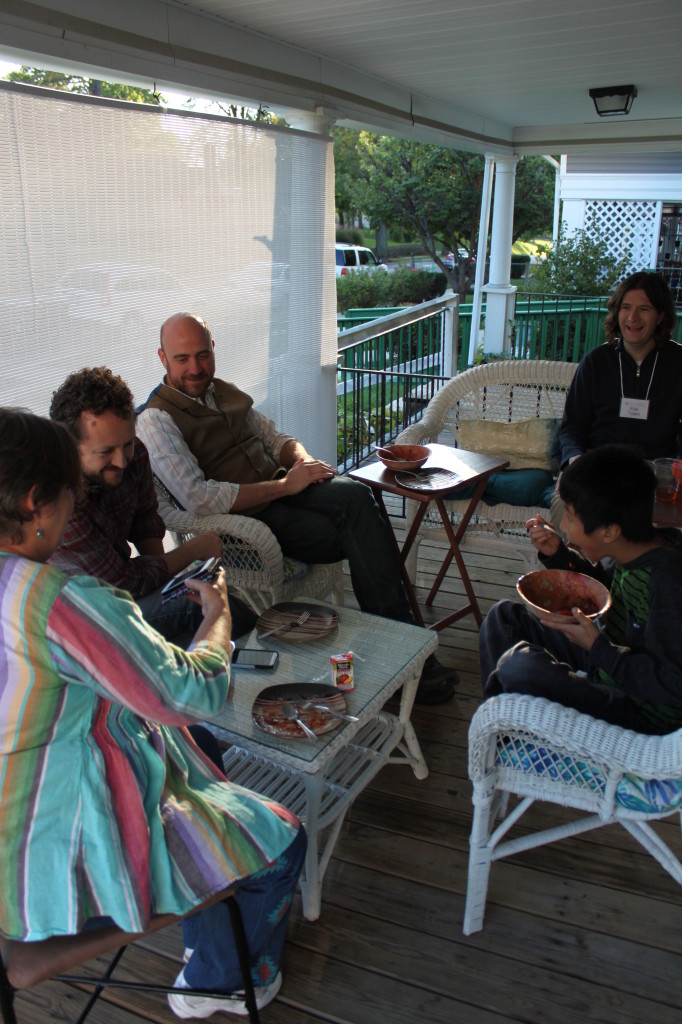 In the circles I run in, it is fashionable to be busy. Most folks I know juggle overfilled schedules, and the little bit of free time we do have is mostly dedicated to recovering from all the hours we spend working. It’s a real challenge not to get sucked into this dynamic of chronic busyness. I try to manage my time and energy in ways that leave me open to unexpected events, conversations, meals – the stuff of organic relationships. Still, more often than not I end up working six days a week and making appointments for most of my evenings, too!
In the circles I run in, it is fashionable to be busy. Most folks I know juggle overfilled schedules, and the little bit of free time we do have is mostly dedicated to recovering from all the hours we spend working. It’s a real challenge not to get sucked into this dynamic of chronic busyness. I try to manage my time and energy in ways that leave me open to unexpected events, conversations, meals – the stuff of organic relationships. Still, more often than not I end up working six days a week and making appointments for most of my evenings, too!
None of these activities are bad; in fact, they’re usually quite beneficial. Each task I take on seems reasonable when I commit to it. Yet, when taken together, these various tasks can pile up to the point that they get in the way of my relationship with God, and my openness to other people. I can get so wrapped up in getting things done that I miss the whole point. It’s easy to forget who I’m working for in the first place.
 It seems significant to me that God spent so much time teaching the Hebrews about Sabbath rest. In Genesis, after six days of creative work, God sets an example for us by resting on the seventh. In the law given to Moses, God lays out a regular schedule of rest from work, and full release to those who have the hardest work of all. Jesus, in his ministry, takes this theme to its logical conclusion, commanding his followers not to worry at all. Rather than imagining that our own labor is what provides for us, Jesus reveals that all of life is an unearned gift.
It seems significant to me that God spent so much time teaching the Hebrews about Sabbath rest. In Genesis, after six days of creative work, God sets an example for us by resting on the seventh. In the law given to Moses, God lays out a regular schedule of rest from work, and full release to those who have the hardest work of all. Jesus, in his ministry, takes this theme to its logical conclusion, commanding his followers not to worry at all. Rather than imagining that our own labor is what provides for us, Jesus reveals that all of life is an unearned gift.
If one of the central teachings of our faith is that we should quit worrying and take the time to rest, why is it so hard to let go? What kind of joy could be possible if we accept the simple gift of the present moment? What would it look like to embrace the natural limits that God has gifted each of us with, allowing Christ’s strength to shine through our weakness?
- How do you find the right balance between work and rest, action and contemplation?
- Have you ever experienced your weakness as a gift, rather than a burden?
- What are ways that you have seen God working through human limitations?